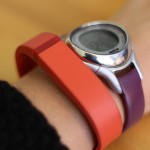
Today I want to share a true story that I’ve been mulling over recently, as I ask myself when will we start to see more substantial gains in health care quality.
It’s the story of a 94 year old woman who was sent from her memory-care residential unit to the emergency room, due to nausea and vomiting. She ended up being hospitalized for about 48 hours, for UTI.
(Sad but true aside: her family has asked for hospitalization to be avoided unless absolutely necessary for comfort. But the facility feels they have to send her to the ER if she falls, vomits, or otherwise looks seriously ill. Argh.)
Before hospitalization, she was only taking vitamin D and a daily aspirin and a multivitamin. She’d been in the memory unit for years due to dementia, and on minimal meds since “graduating” from a stint in hospice a few years ago. Because she’s chair-bound and it’s hard for her to leave the facility, she hasn’t been to her PCP’s office in years. Instead, I come and see her at the facility once or twice a year.
Guess how many medications she was discharged from the hospital on? Fourteen.
As in, fourteen new daily medications to be taken indefinitely! (There was also a course of antibiotics for UTI plus a few new PRN medications.)
I thought I was hallucinating when I saw her med sheet at the facility. [Read more…] about Epic Medication Reconciliation Fail: A True Story


